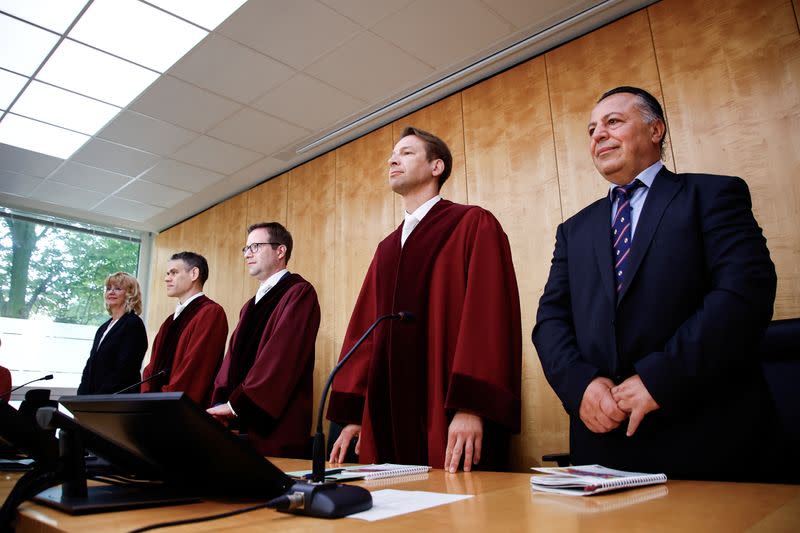German court finds far-right AfD pursues goals 'against democracy'
By Elke Ahlswede
MUENSTER, Germany (Reuters) -A German high court on Monday ruled that domestic security services could continue to treat the far-right Alternative for Germany (AfD) as a potentially extremist party, meaning they retain the right to keep it under surveillance.
The Federal Office for the Protection of the Constitution (BfV), charged with protecting Germany's democratic order from extremist threats, has classified the AfD as potentially extreme since 2021.
Judges at the higher administrative court in Muenster upheld a lower court's 2022 finding that the designation was proportionate and did not violate the constitution, or European or domestic civil law.
"The court finds there is sufficient evidence that the AfD pursues goals that run against the human dignity of certain groups and against democracy," the judges wrote.
"There are grounds to suspect at least part of the party wants to accord second-rank status to German citizens with a migration background."
The party, which tops polls in several eastern states that hold elections later this year, has recently faced harsher scrutiny over racist remarks by members and allegations that it harbours spies and agents for Russia and China.
"The establishment of this state - and that includes the BfV and the media - is being used to exclude us from democratic competition," said the AfD's co-leader, Alice Weidel, adding that the AfD would appeal.
Monday's ruling settles the facts of the case: an appeal could only involve questioning the way lower courts applied the law.
Few experts had expected the AfD's challenge of the lower court's ruling to succeed. The party presented no fresh evidence, instead taking up hours of court time with lengthy submissions demanding senior government officials be summoned as witnesses.
That led some experts to suggest the court challenge was as much part of a communications strategy and a plan to gum up the institutions of the state as it was a legal strategy.
"This ruling shows that our democracy can defend itself," said Interior Minister Nancy Faeser in a statement. "It has tools that protect it from internal threats."
The potentially extremist designation means security services can wiretap the party and recruit informants inside it.
The AfD was vying with the opposition conservatives to top nationwide polls earlier this year when revelations about a meeting at which senior members discussed deportations of non-ethnic German citizens prompted months of street protests.
(Reporting by Elke Ahlswede, writing by Thomas Escritt, editing by Friederike Heine and Nick Macfie)

 Yahoo News
Yahoo News 




